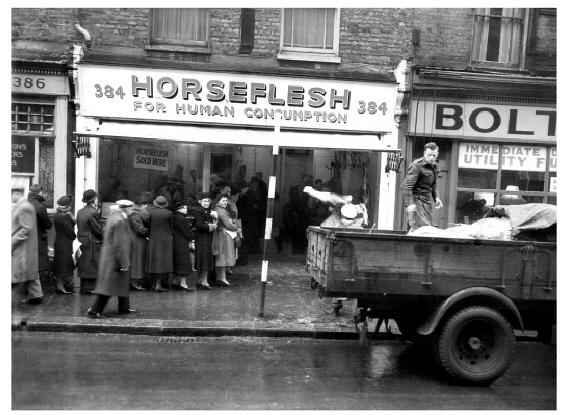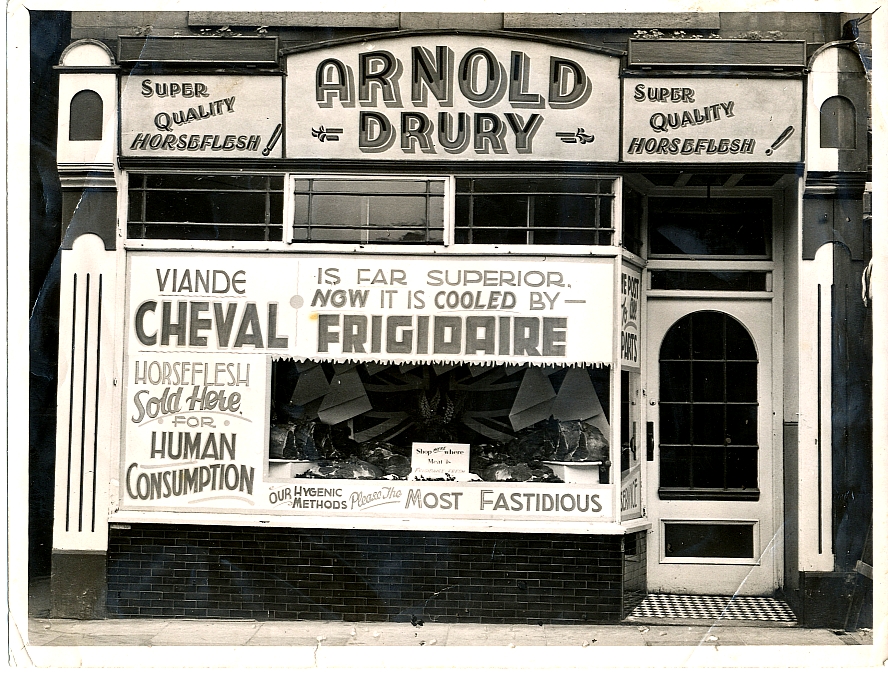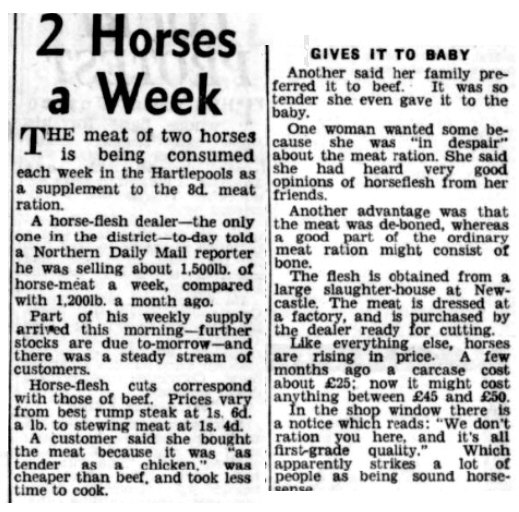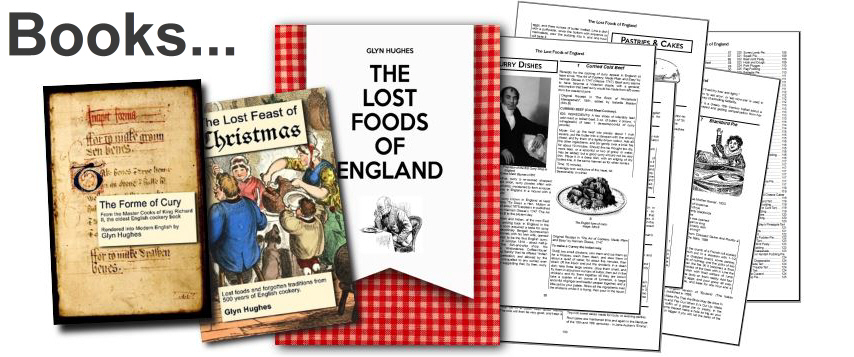

|
 Despite a half-hearted attempt to popularise it by Janet Street-Porter and Gordon Ramsay, horse meat remains very rare in England. It was promoted during the Second World War, and continued to be sold into the 1950’s, though horse butchers have often thought it wise to carry on their trade in this horse-adoring nation under the name of the safer-sounding French ‘Viande Cheval’.  Horsemeat butcher, 1940’s Image: Unknown As far as we can establish, there are none left, but the food writer Matthew Fort reports a correspondent explaining that; “my grandfather, Arnold Drury was a master butcher and sold ‘’Viande Cheval or ‘Super Quality Horseflesh in his shop on Silver Street Doncaster from 1941 until his death in 1951. The shop continued to trade until 1955. Horse meat was not rationed during the war although a butcher required a licence to sell it. The meat had to bear the stamp ‘fit for human consumption’, could not be sold on the bone and all cuts retailed at the same price per pound.” (Source: fortonfood)  Source: fortonfood) There was a brief attempt to revive the trade, notably by butcher Bob Walker at Smethwick in the West Midlands during the 1990’s beef troubles, but it didn’t last.  Bob Walker at his horsemeat shop in Smethwick, West Midlands, 2000 Image: Unknown  Hartlepool Mail – Thursday 15 February 1951 In ‘Odd People in Odd Places‘ (1883), James Greenwood, considered the willingness of the English to accept more-or-less anything in the shape of a sausage, but never, never, horse, saying that “It is curious the unconquerable repugnance even the very poorest of the lower class have for horseflesh, and how quickly their fury is aroused if they have cause to suspect that the same is being foisted on them for ordinary beef.” In the 1874 ‘The English Gipsies and Their Language‘, Charles Leland reports being told that “I should hunt for fern-roots … I should hunt for a hotchewitchi (hedge-hog) there’s no better eating.” “And what had you for dinner to-day?” I inquired. “Some cocks’ heads. They’re very fine – very fine indeed!” We may be equally foolish, you and I when we are disgusted at the idea of feeding on many things which mere association and superstition render revolting. But the old fashioned gypsy has none of these qualms – he is haunted by no ghost of society – save the policeman, he knows none of its terrors. Whatever is edible he eats, except horse-meat. A UK Food Standards Agency survey in December 2003 found that one out of 158 imported dry sausages did in fact contain horse or donkey meat. Then an Irish Foods Standards Agency investigation of 2013 showed that a not insignificant proportion of the cheaper beef burgers in Britain and Ireland contained some horse DNA. Further investigation in the UK showed that about 1% of minced ‘beef’ products contained some horse, and that a few, including well-known brands, were all horse. See: Badger  |
|
MORE FROM Foods of England... Cookbooks ● Diary ● Index ● Magic Menu ● Random ● Really English? ● Timeline ● Donate ● Royalty ● English Service ● Food Map of England ● Lost Foods ● Accompaniments ● Biscuits ● Breads ● Cakes and Scones ● Cheeses ● Classic Meals ● Curry Dishes ● Dairy ● Drinks ● Egg Dishes ● Fish ● Fruit ● Fruits & Vegetables ● Game & Offal ● Meat & Meat Dishes ● Pastries and Pies ● Pot Meals ● Poultry ● Preserves & Jams ● Puddings & Sweets ● Sauces and Spicery ● Sausages ● Scones ● Soups ● Sweets and Toffee ● About ... ● Bookshop ● Email: [email protected] COPYRIGHT and ALL RIGHTS RESERVED: © Glyn Hughes 2022 BUILT WITH WHIMBERRY |